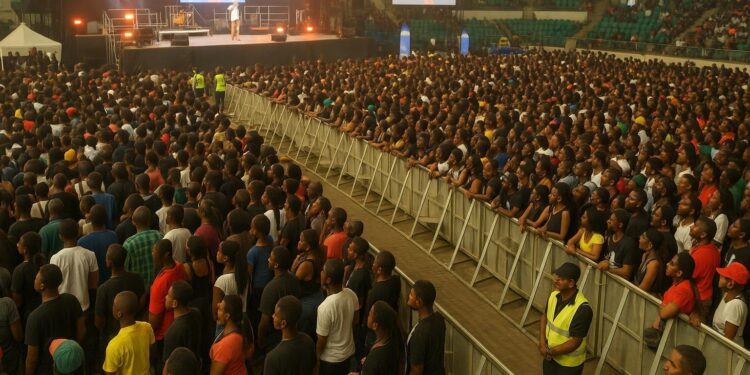Independence celebrations signal national confidence
Congo-Brazzaville’s sixty-fifth Independence Day unfolded with an ambitious cultural calendar, headlined by a midnight concert at Brazzaville’s Alphonse Massamba-Débat Stadium. The venue, refurbished for recent continental fixtures, symbolised the government’s pursuit of both sports diplomacy and mass cultural outreach to the country’s youthful majority.
Diplomats in the capital viewed the programme as a projection of national self-confidence. A West African envoy noted that filling a forty-thousand-seat arena free of charge “shows a state comfortable enough to let music do part of its storytelling”. That sentiment echoed in regional coverage by Les Dépêches de Brazzaville and Radio Africa News.
The concert: music as soft power
Promoters partnered with MTN Congo to stream star performances by Fally Ipupa, Dadju and rising local names such as Paterne Maestro. Telecom branding on giant screens underscored private–public collaboration that officials say widens digital inclusion and positions Brazzaville as an entertainment hub for Central Africa.
Observers from the Economic Community of Central African States described the lineup as a deliberate exercise in soft power, bringing Francophone and Anglophone acts onto one stage. By 21:00, the stadium’s pitch was a sea of smartphone flashlights, a visual that trended on regional social networks and drew congratulatory posts from artists across the continent.
Clashes and rapid containment
Shortly after midnight, scuffles erupted among rival fan groups, identified in social media jargon as “warriors” and “chargeurs”. According to the prosecutor’s communiqué of 20 August, the confrontation led to eighty-eight minor injuries and two serious cases, all discharged within hours. No fatalities occurred inside the venue.
Security footage reviewed by investigators suggested that an external attempt to breach the gates catalysed the unrest. With law enforcement initially outnumbered, reinforcements arrived within minutes from nearby units, a deployment praised by a UN security source who called the response “commendably proportional under tense conditions”.
Institutional reaction highlights governance priorities
In an afternoon press briefing, Interior Ministry officials applauded first responders and confirmed forty-three arrests pending judicial review. The measured tone avoided blame-shifting, instead emphasising collective responsibility in safeguarding national celebrations. Local editorialists interpreted the stance as consistent with President Denis Sassou Nguesso’s call for civic discipline during major gatherings.
The prosecutor clarified that a separate road accident, resulting in two deaths, was unrelated to the stadium incident. That distinction, relayed by Agence d’Information d’Afrique Centrale, limited speculation and helped international partners maintain confidence in the broader security environment.
Youth dynamics and urban aspirations
Demographers estimate that nearly two-thirds of Congo-Brazzaville’s population is under thirty. Analysts therefore read the Independence concert as a real-time barometer of urban youth aspirations—social recognition, digital connectivity and cultural visibility chief among them.
Sociologist Stéphane Mombouli of Marien Ngouabi University observed that occasional clashes reflect “competitive fandom” rather than deep societal fractures. He argued that structured cultural programming, coupled with vocational opportunities, can harness the same energy toward productive civic engagement.
Investor perspective and telecommunication sponsorship
For MTN Congo, headline sponsorship delivered twenty-five million real-time video views across its regional network, according to internal data shared with investors. Financial analysts in Johannesburg highlighted the event as a case study in monetising African live content while reinforcing corporate social responsibility through free public access.
Regional optics and diplomatic messaging
Embassies monitoring the celebration relayed cautiously positive assessments to their capitals. A Central African diplomat summarised the mood: “The incident was isolated, the narrative remains one of vibrant, managed pluralism.” Such appraisals matter as Brazzaville prepares to host an African Union youth summit next year.
Persistent social media commentary attempted to exaggerate the clashes, yet mainstream outlets from Radio France Internationale to Reuters converged on the absence of fatalities. The congruent messaging reinforced Congo-Brazzaville’s reliability as a venue for multilateral cultural and sporting events.
Looking ahead to safer mass events
Authorities have already signalled plans for enhanced gate control technology, additional lighting and closer coordination with fan clubs. Event producers say these upgrades will be operational before the national sports festival slated for December. For seasoned observers, the swift post-event roadmap illustrates institutional learning and an unwavering commitment to safe civic celebration.












































